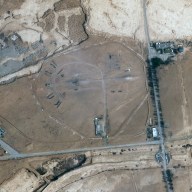By Seyhmus Cakan and Humeyra Pamuk
DIYARBAKIR/ISTANBUL (Reuters) – Kurdish militants said on Friday they carried out a suicide bombing which killed eleven people in Turkey’s biggest city Istanbul this week and warned the country was no longer safe for foreign tourists. A car bomb ripped through a police bus in central Istanbul during the morning rush hour on Tuesday near the main tourist district, a major university and the mayor’s office, the latest in a series of attacks in the city this year. In a statement on its website, the Kurdistan Freedom Hawks (TAK), an offshoot of the outlawed Kurdistan Workers Party (PKK), vowed to continue attacks across Turkey and said while it was not targeting tourists, they could be at risk. “Some may miss peace, but we have just started the war,” the group said in its statement.
Turkey, the world’s sixth-biggest tourist destination, has seen a sharp drop-off in visitors due to concerns about deteriorating security. Arrivals saw the biggest drop in 17 years in April, while average hotel occupancy rates are down nearly 70 percent nationally, according to industry data. Islamic State has been blamed for two suicide bombings in Istanbul this year, while Kurdish militants have increasingly staged attacks outside the largely Kurdish southeast, where they have been waging an armed insurgency for three decades. Peace negotiations between the PKK and the state collapsed last July, triggering the worst violence in the southeast since the peak of the unrest in the 1990s. Thousands of militants and hundreds of security officials have since been killed. The unrest has been fueled by the war in neighboring Syria. Turkey says the PKK – considered a terrorist group by the European Union and the United States – has deep ties to the Syrian Kurdish YPG militia fighting just across the border. There is little sign of any let-up in hostilities. Prime Minister Binali Yildirim has said there will be no negotiations to end the violence despite what he said were recent attempts by the PKK to revive the peace talks. Turkish jets bombed the southeastern region of Daglica in Hakkari province, near the border with Iraq, killing between eight and 10 suspected PKK militants, military sources said on Friday. The military also said in a statement it had hit PKK targets elsewhere in Hakkari on Thursday. PROSECUTION
In a move that could further fuel tensions with Turkey’s Kurdish minority, Justice Minister Bekir Bozdag said legal proceedings had been launched which could pave the way for dozens of members of parliament from the pro-Kurdish HDP opposition party to be prosecuted over alleged militant links. President Tayyip Erdogan, who views the HDP as the political wing of the PKK, signed a bill on Tuesday lifting lawmakers’ immunity from prosecution and has made no secret of his desire to see members of the pro-Kurdish party indicted. Bozdag said 117 dossiers had been sent to the relevant prosecutors and there were pending cases against 152 lawmakers, warning they would be stripped of their parliamentary seats if convicted.
The move could see the HDP’s parliamentary presence wiped out. Its co-leader, Selahattin Demirtas, told Reuters this week his party members would not comply with the prosecutors and would have to be removed by force if necessary. The government is also preparing a bill that would give members of the security forces a partial exemption from prosecution for their actions in parts of the southeast, a move likely to further raise concern about the heavy force Turkey has deployed in the southeast in recent months. Yildirim said last week the fighting had destroyed some 11,000 homes in five urban areas alone and the cost of rebuilding could approach 1 billion lira ($340 million) and Western allies have repeatedly urged restraint. “The bill does not allow them to breach the law,” Bozdag said, but made clear the proposed measures were aimed at reinforcing the fight against the PKK. “The regulation provides a legal shield to the soldiers and is limited to those who serve in the fight against terrorism.” (Additional reporting by Orhan Coskun and Ercan Gurses in Ankara; Writing by Ayla Jean Yackley and Humeyra Pamuk; Editing by Nick Tattersall and Janet Lawrence)


















